| Listing 1 - 10 of 12 | << page >> |
Sort by
|
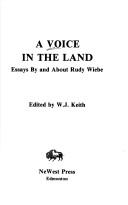
ISBN: 0920316077 Year: 1981 Volume: 2 Publisher: Edmonton : NeWest,
Abstract | Keywords | Export | Availability | Bookmark
 Loading...
Loading...Choose an application
- Reference Manager
- EndNote
- RefWorks (Direct export to RefWorks)
American literature --- Wiebe, Rudy --- Wiebe, Rudy Henry, --- Wiebe, Rudy, --- Wiebe (rudy), 1934 --- -American literature --- -Wiebe (rudy), 1934 --- -Wiebe (rudy), 1934-
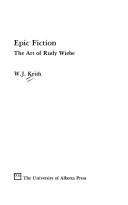
ISBN: 0888640757 Year: 1981 Publisher: Edmonton, Alberta : University of Alberta Press,
Abstract | Keywords | Export | Availability | Bookmark
 Loading...
Loading...Choose an application
- Reference Manager
- EndNote
- RefWorks (Direct export to RefWorks)
American literature --- Wiebe, Rudy --- Wiebe, Rudy Henry, --- Criticism and interpretation --- Wiebe, Rudy, --- Criticism and interpretation. --- Wiebe (rudy), 1934 --- -American literature --- -Wiebe (rudy), 1934 --- -Wiebe (rudy), 1934-
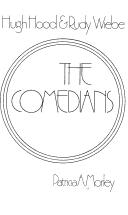
ISBN: 077201051X Year: 1977 Publisher: Toronto : Clarke, Irwin,
Abstract | Keywords | Export | Availability | Bookmark
 Loading...
Loading...Choose an application
- Reference Manager
- EndNote
- RefWorks (Direct export to RefWorks)
American literature --- Hood, Hugh --- Wiebe, Rudy --- Wiebe, Rudy Henry, --- Criticism and interpretation --- Wiebe, Rudy, --- Criticism and interpretation.
Book
ISBN: 9789042037250 Year: 2013 Volume: 166 Publisher: Amsterdam ; New York : Rodopi,
Abstract | Keywords | Export | Availability | Bookmark
 Loading...
Loading...Choose an application
- Reference Manager
- EndNote
- RefWorks (Direct export to RefWorks)
The problems of knowing and representing the other are acute every time we encounter a text as writers or readers. Ethical Encounters engages with the representation of encounters with alterity in the writings of the Canadian author Rudy Wiebe. Drawing on Emmanuel Levinas’s philosophy on the ethics of encountering the other, the book argues that Wiebe’s writings show that the self’s knowledge offers an inadequate basis for ethically valid representations of those encounters. In the search for ethical ways of engaging with alterity, Wiebe’s writings offer new ways of employing silence and the presence of the unknowable as means to explore encounters with alterity. Ethical Encounters shows that dividing Wiebe’s work into two sharply distinct categories of ‘Mennonite’ and ‘First Nations’ writings overlooks important connections between the author’s central works and may seriously hinder the interrogation of narrative engagement with alterity. While such human encounters resonate against ethical strategies of representation, the greatest challenge for the ethics of encounter in Wiebe’s texts arises in encounters with the alterity of space. Ethical Encounters engages with both physical and narrative spaces which are not permanently fixed in landscape or geography, or in human perceptions of place, arguing that the most radical expressions of alterity in Wiebe’s writings emerge in encounters with the spaces of the Canadian North. The study raises questions about the relationship between the self and the other as they concern knowing: what does the self know when it claims to know another person or space? How does the narrating self negotiate the seeming collapse of its own knowledge when it encounters others whose stories cannot be known? Ethical Encounters casts new light not just on Wiebe’s writings but also on how we as authors and readers engage with expressions of alterity which refuse to be transformed into familiar, knowable forms.
Autrui --- Morale --- Espace --- Identité (psychologie) --- Dans la littérature --- Wiebe, Rudy, --- Dans la littérature. --- Wiebe, Rudy
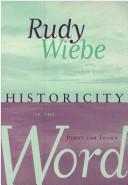
ISBN: 0888642652 Year: 1995 Publisher: Edmonton : University of Alberta Press,
Abstract | Keywords | Export | Availability | Bookmark
 Loading...
Loading...Choose an application
- Reference Manager
- EndNote
- RefWorks (Direct export to RefWorks)
Wiebe, Rudy, --- Wiebe, Rudy Henry, --- Criticism and interpretation. --- Critique et interprétation
Book
ISBN: 9401209790 9789401209793 1306167566 9781306167567 9042037253 9789042037250 Year: 2013 Publisher: Amsterdam New York Rodopi
Abstract | Keywords | Export | Availability | Bookmark
 Loading...
Loading...Choose an application
- Reference Manager
- EndNote
- RefWorks (Direct export to RefWorks)
The problems of knowing and representing the other are acute every time we encounter a text as writers or readers. Ethical Encounters engages with the representation of encounters with alterity in the writings of the Canadian author Rudy Wiebe. Drawing on Emmanuel Levinas’s philosophy on the ethics of encountering the other, the book argues that Wiebe’s writings show that the self’s knowledge offers an inadequate basis for ethically valid representations of those encounters. In the search for ethical ways of engaging with alterity, Wiebe’s writings offer new ways of employing silence and the presence of the unknowable as means to explore encounters with alterity. Ethical Encounters shows that dividing Wiebe’s work into two sharply distinct categories of ‘Mennonite’ and ‘First Nations’ writings overlooks important connections between the author’s central works and may seriously hinder the interrogation of narrative engagement with alterity. While such human encounters resonate against ethical strategies of representation, the greatest challenge for the ethics of encounter in Wiebe’s texts arises in encounters with the alterity of space. Ethical Encounters engages with both physical and narrative spaces which are not permanently fixed in landscape or geography, or in human perceptions of place, arguing that the most radical expressions of alterity in Wiebe’s writings emerge in encounters with the spaces of the Canadian North. The study raises questions about the relationship between the self and the other as they concern knowing: what does the self know when it claims to know another person or space? How does the narrating self negotiate the seeming collapse of its own knowledge when it encounters others whose stories cannot be known? Ethical Encounters casts new light not just on Wiebe’s writings but also on how we as authors and readers engage with expressions of alterity which refuse to be transformed into familiar, knowable forms.
Self in literature. --- Other (Philosophy) in literature. --- Wiebe, Rudy, --- Wiebe, Rudy Henry, --- Criticism and interpretation. --- Canadian literature --- History and criticism.
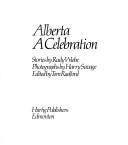
ISBN: 0888301677 Year: 1979 Publisher: Edmonton : Hurtig,
Abstract | Keywords | Export | Availability | Bookmark
 Loading...
Loading...Choose an application
- Reference Manager
- EndNote
- RefWorks (Direct export to RefWorks)
Wiebe, Rudy, --- Alberta --- Alberta --- Description and travel --- Descriptions et voyages --- Vues
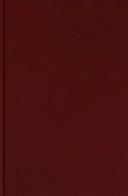
ISBN: 9042015543 9004490221 Year: 2001 Publisher: Amsterdam : Rodopi,
Abstract | Keywords | Export | Availability | Bookmark
 Loading...
Loading...Choose an application
- Reference Manager
- EndNote
- RefWorks (Direct export to RefWorks)
Comparative literature --- Thematology --- English literature --- History of civilization --- Sociolinguistics --- Ngugi wa Thiong'o --- Walcott, Derek --- Dizdar (mak) --- Hood (hugh) --- Hospital (janet turner), 1942 --- -Maniam (k.s.) --- Narayan (r. k.) --- Religion et litterature --- Sahgal (nayantara) --- Saro-wiwa (ken), 1941-1995 --- Tahir (ibrahim) --- Wiebe (rudy), 1934 --- -Ngugi wa Thiong'o --- -Dizdar (mak) --- Wiebe (rudy), 1934-
Book
ISBN: 0951030604 Publisher: Leeds : University of Leeds.
Abstract | Keywords | Export | Availability | Bookmark
 Loading...
Loading...Choose an application
- Reference Manager
- EndNote
- RefWorks (Direct export to RefWorks)
American literature --- Canada --- CANADIAN LITERATURE (ENGLISH) --- SCOTT (WALTER, SIR), 1771-1832 --- RICHARDSON (JOHN) --- KLEIN (ABRAHAM MOSES), 1909-1972 --- LAURENCE (MARGARET) --- DAVIES (ROBERTSON) --- WIEBE (RUDY), 1934 --- -WIEBE (RUDY), 1934 --- -KROETSCH (ROBERT) --- ATWOOD (MARGARET), 1939 --- -DEPTFORD TRILOGY, THE --- LOVELY ENEMY, MY --- TEMPTATIONS OF BIG BEAR, THE --- BADLANDS
Book
ISBN: 0887554482 0887554504 9780887554506 9780887554483 0887557473 9780887557477 9781306203296 1306203295 Year: 2013 Publisher: Manitoba, Canada : University of Manitoba Press,
Abstract | Keywords | Export | Availability | Bookmark
 Loading...
Loading...Choose an application
- Reference Manager
- EndNote
- RefWorks (Direct export to RefWorks)
Despite the fact that Russian Mennonites began arriving in Canada en masse in the 1870s, Mennonite Canadian literature has been marked by a compulsive retelling of the mass migration of some 20,000 Russian Mennonites to Canada following the collapse of the "Mennonite Commonwealth" in the 1920s. This privileging of a seminal dispersal within the community's broader history reveals the ways in which the 1920s narrative has come to function as an origin story, or "break event," for the Russian Mennonites in Canada, serving to affirm a communal identity across national and generational boundaries. Drawing on recent work in diaspora studies, Rewriting the Break Event offers a historicization of Mennonite literary studies in Canada, followed by close readings of five novels that rewrite the Mennonite break event through specific strains of emphasis, including a religious narrative, ethnic narrative, trauma narrative, and meta-narrative. The result is thoughtful and engaging exploration of the shifting contours of Mennonite collective identity, and an exciting new methodology that promises to resituate the discourse of migrant writing in Canada.
Mennonites --- Anabaptists --- Baptists --- Christian sects --- In literature. --- Dick, Janice L., --- Reimer, Al, --- Dyck, Arnold, --- Birdsell, Sandra, --- Wiebe, Rudy, --- Soviet Union --- Canada --- Emigration and immigration. --- Mennonite. --- Russian Mennonite. --- diaspora. --- ethnicity. --- immigration. --- literature. --- narrative. --- trauma.
| Listing 1 - 10 of 12 | << page >> |
Sort by
|

 Search
Search Feedback
Feedback About UniCat
About UniCat  Help
Help News
News